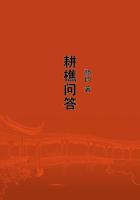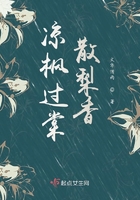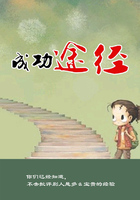When the dawn broke they rose up and cooked more rice, and drank more water. After that they walked all round the back of the mountain to the place where they had left the Nunda, and they saw it stretched out where they had found it, stiff and dead. And they took it up and carried it back to the town, singing as they went, 'He has killed the Nunda, the eater of people.'
And when his father heard the news, and that his son was come, and was bringing the Nunda with him, he felt that the man did not dwell on the earth whose joy was greater than his. And the people bowed down to the boy and gave him presents, and loved him, because he had delivered them from the bondage of fear, and had slain the Nunda.
[Adapted from Swahili Tales.]
THE STORY OF HASSEBU
Once upon a time there lived a poor woman who had only one child, and he was a little boy called Hassebu. When he ceased to be a baby, and his mother thought it was time for him to learn to read, she sent him to school. And, after he had done with school, he was put into a shop to learn how to make clothes, and did not learn; and he was put to do silversmith's work, and did not learn; and whatsoever he was taught, he did not learn it.
His mother never wished him to do anything he did not like, so she said: 'Well, stay at home, my son.' And he stayed at home, eating and sleeping.
One day the boy said to his mother: 'What was my father's business?'
'He was a very learned doctor,' answered she.
'Where, then, are his books?' asked Hassebu.
'Many days have passed, and I have thought nothing of them. But look inside and see if they are there.' So Hassebu looked, and saw they were eaten by insects, all but one book, which he took away and read.
He was sitting at home one morning poring over the medicine book, when some neighbours came by and said to his mother: 'Give us this boy, that we may go together to cut wood.' For wood-cutting was their trade, and they loaded several donkeys with the wood, and sold it in the town.
And his mother answered, 'Very well; to-morrow I will buy him a donkey, and you can all go together.'
So the donkey was bought, and the neighbours came, and they worked hard all day, and in the evening they brought the wood back into the town, and sold it for a good sum of money. And for six days they went and did the like, but on the seventh it rained, and the wood-cutters ran and hid in the rocks, all but Hassebu, who did not mind wetting, and stayed where he was.
While he was sitting in the place where the wood-cutters had left him, he took up a stone that lay near him, and idly dropped it on the ground. It rang with a hollow sound, and he called to his companions, and said, 'Come here and listen; the ground seems hollow!'
'Knock again!' cried they. And he knocked and listened.
'Let us dig,' said the boy. And they dug, and found a large pit like a well, filled with honey up to the brim.
'This is better than firewood,' said they; 'it will bring us more money. And as you have found it, Hassebu, it is you who must go inside and dip out the honey and give to us, and we will take it to the town and sell it, and will divide the money with you.'
The following day each man brought every bowl and vessel he could find at home, and Hassebu filled them all with honey. And this he did every day for three months.
At the end of that time the honey was very nearly finished, and there was only a little left, quite at the bottom, and that was very deep down, so deep that it seemed as if it must be right in the middle of the earth. Seeing this, the men said to Hassebu, 'We will put a rope under your arms, and let you down, so that you may scrape up all the honey that is left, and when you have done we will lower the rope again, and you shall make it fast, and we will draw you up.'
'Very well,' answered the boy, and he went down, and he scraped and scraped till there was not so much honey left as would cover the point of a needle. 'Now I am ready!' he cried; but they consulted together and said, 'Let us leave him there inside the pit, and take his share of the money, and we will tell his mother, "Your son was caught by a lion and carried off into the forest, and we tried to follow him, but could not." '
Then they arose and went into the town and told his mother as they had agreed, and she wept much and made her mourning for many months. And when the men were dividing the money, one said, 'Let us send a little to our friend's mother,' and they sent some to her; and every day one took her rice, and one oil; one took her meat, and one took her cloth, every day.
It did not take long for Hassebu to find out that his companions had left him to die in the pit, but he had a brave heart, and hoped that he might be able to find a way out for himself. So he at once began to explore the pit and found it ran back a long way underground. And by night he slept, and by day he took a little of the honey he had gathered and ate it; and so many days passed by.
One morning, while he was sitting on a rock having his breakfast, a large scorpion dropped down at his feet, and he took a stone and killed it, fearing it would sting him. Then suddenly the thought darted into his head, 'This scorpion must have come from somewhere! Perhaps there is a hole. I will go and look for it,'
and he felt all round the walls of the pit till he found a very little hole in the roof of the pit, with a tiny glimmer of light at the far end of it. Then his heart felt glad, and he took out his knife and dug and dug, till the little hole became a big one, and he could wriggle himself through. And when he had got outside, he saw a large open space in front of him, and a path leading out of it.
He went along the path, on and on, till he reached a large house, with a golden door standing open. Inside was a great hall, and in the middle of the hall a throne set with precious stones and a sofa spread with the softest cushions. And he went in and lay down on it, and fell fast asleep, for he had wandered far.
By-and-by there was a sound of people coming through the courtyard, and the measured tramp of soldiers. This was the King of the Snakes coming in state to his palace.















